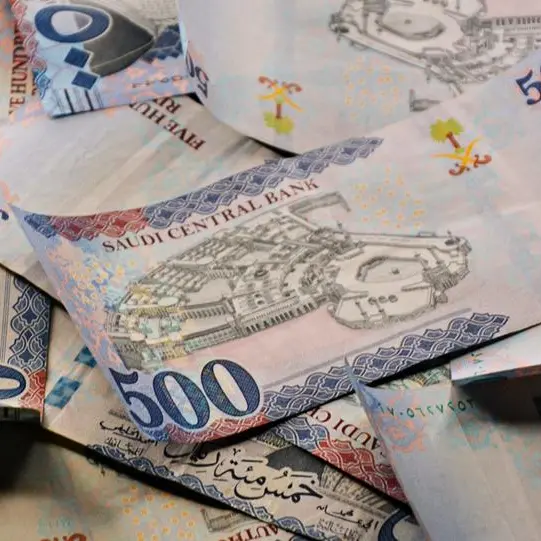PHOTO
BEIJING: The UAE has been elected as Vice Chairman of the Board of Directors of the Belt and Road Initiative Tax Administration Organisation.
This came during the Belt and Road Initiative Tax Administration Cooperation Forum, which concluded on Saturday, April 20, 2019, in China where Khalid Ali Al Bustani, Director General of the Federal Tax Authority (FTA), led a UAE delegation to the three-day event.
Representatives from FTA and the Ministry of Finance joined the delegation to the conference, during which the UAE delegates sought to introduce attendees to the country’s tax system and strengthen international cooperation in the sector. They took part in the meeting of the BRI Supervisory Board, during which a Memorandum of Understanding (MoU) was signed to participate in the Forum and elect the Chairman and their Vice Chairmen. The UAE was elected as Vice Chairman of the Board, represented by Al Bustani.
The forum explored ways to foster greater cooperation among BRI countries to create an environment that catalyses economic development, offers advanced services to taxpayers, enhances international economic cooperation, and removes obstacles blocking cross-border trade and investment, in addition to fostering a better exchange of expertise and information among all BRI countries.
The delegation also participated in several meetings at the Forum, which brings together all member states of the Board, as well as observer countries, international multilateral organisations, tax experts and representatives of international private companies.
The meetings led to the launch of five major initiatives to support international cooperation on taxes among BRI countries. First, provide solutions that raise awareness of tax laws to ensure compliance, and second, develop mechanisms to resolve tax disputes. Third, support capacity building in tax authorities in BRI countries by establishing joint training centres to coach employees in these departments, where four centres have been announced as a first stage, located in Macau, mainland China, and Kazakhstan, and providing training is in three languages : Chinese, English, and Portuguese.
The fourth initiative seeks to facilitate compliance for taxpayers by reducing the number of documents required and providing information, while the fifth and final initiative seeks to develop tax systems by automating them.
During the forum’s discussions, the Supervisory Board adopted a plan of action to ensure cooperation among tax authorities in BRI countries in these five sectors. The Board also adopted a mechanism to guide communication with the private sector regarding taxes to achieve the highest levels of compliance.
Khalid Al Bustani underlined the importance of the UAE joining the BRI Tax Administration Cooperation Mechanism, noting that the UAE is a major player in the Initiative, which was launched in 2013 to facilitate international commercial and investment exchange; strengthen bonds between the countries of central and south Asia, Africa, and Europe; and promote growth along the Old Silk Road that connected Arab and Chinese civilisations for centuries.
"This step helps establish clear processes to facilitate cooperation in tax matters among the countries covered by the Initiative, which are expected to be 70 in number and home to 4.4 billion people," he added. "The BRI Tax Administration Cooperation Mechanism will facilitate the flow of information among tax authorities in BRI countries." Al Bustani took part in panel discussion at the Forum, where he stressed that the "UAE’s participation in these meetings is essential for familiarising countries around the world with the UAE’s tax system and its implementation tactics." The FTA Director General underlined the importance of the event and its role in synchronising the efforts of the tax authorities across all BRI countries to establish a long-term mechanism for tax cooperation among them – a first step towards facilitating mutual trade and investment ties.
The delegation showcased the UAE’s pioneering experience in implementing tax laws that adhere to international best standards and promote self-compliance and transparency. In collaboration with various concerned government and non-governmental entities, the FTA successfully implemented a holistic and balanced tax system that relies on advanced automated electronic systems. The Authority also launched a user-friendly website that includes all legislation, manuals, and Public Clarifications, as well as a contact centre to answer queries.
"The UAE is one of the first countries in the world to implement a fully electronic tax system, free of paper transactions, that encourages voluntary compliance with tax procedures," Al Bustani noted, underlining the pivotal role that the UAE plays in implementing the Belt and Road Initiative, which stems from its status as a financial and commercial hub, in addition to its strategic geographic position.
Participants at the forum applauded the UAE’s experience in implementing its tax system, as well as the country’s achievements in tax administration and achieving high compliance rates in a short period of time, which asserts its active role in achieving the objectives of the Forum to enhance tax cooperation and sharing experiences among member states.
With more than 200 experts and officials in attendance, the first Belt and Road Initiative Tax Administration Cooperation Forum underlined the importance of tax collaboration in removing any barriers to trade, investment, and economic cooperation. The Forum resulted in launching the Belt and Road Initiative Tax Administration Cooperation Mechanism, which facilitates the exchange of expertise to build up tax capacities in all BRI countries.
© Copyright Emirates News Agency (WAM) 2019.





















